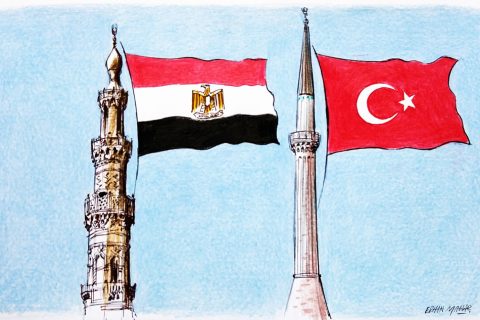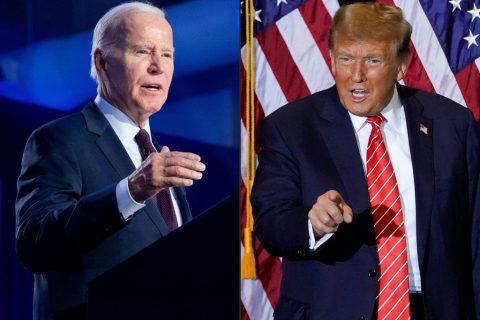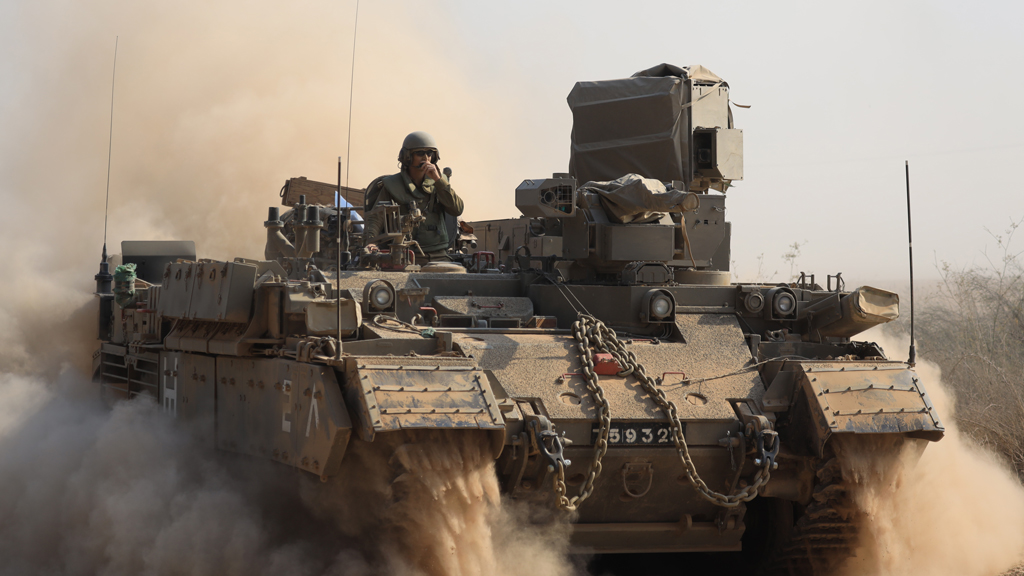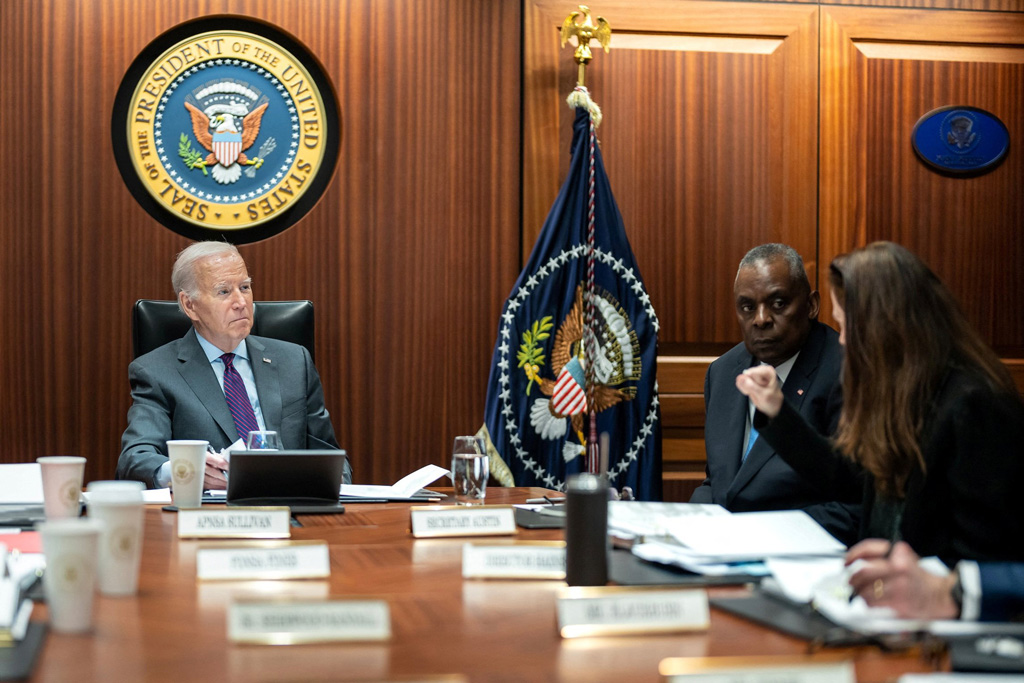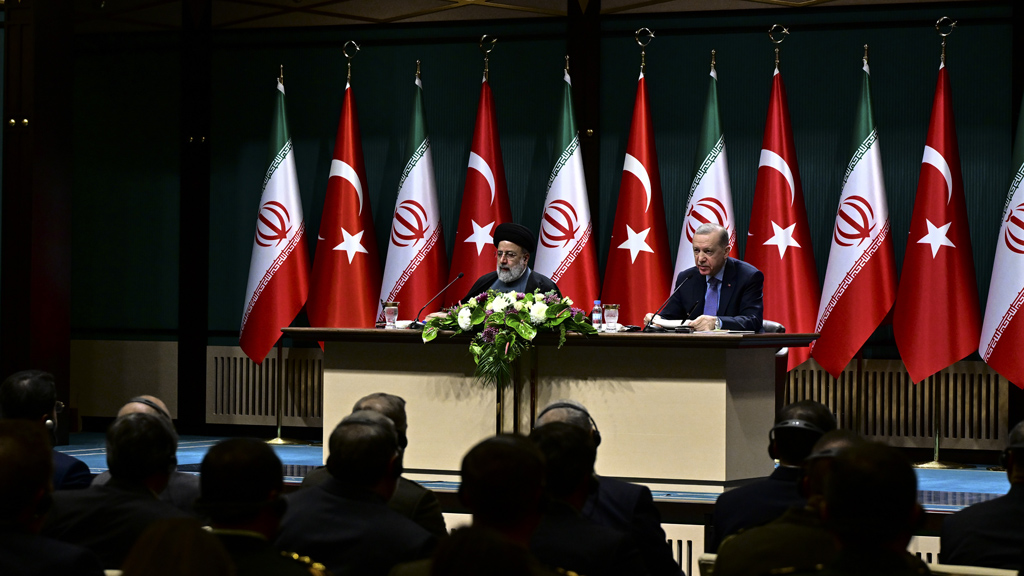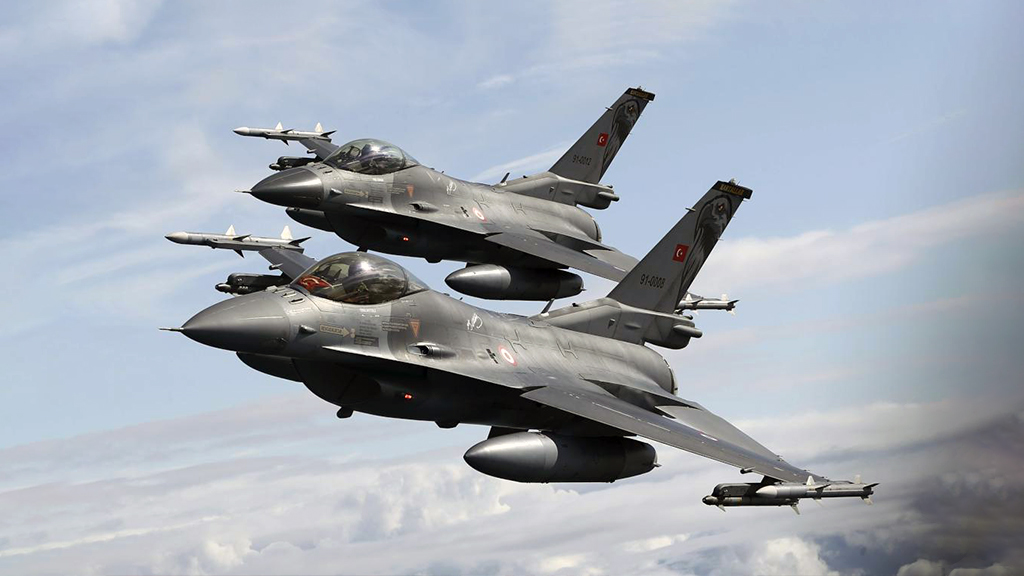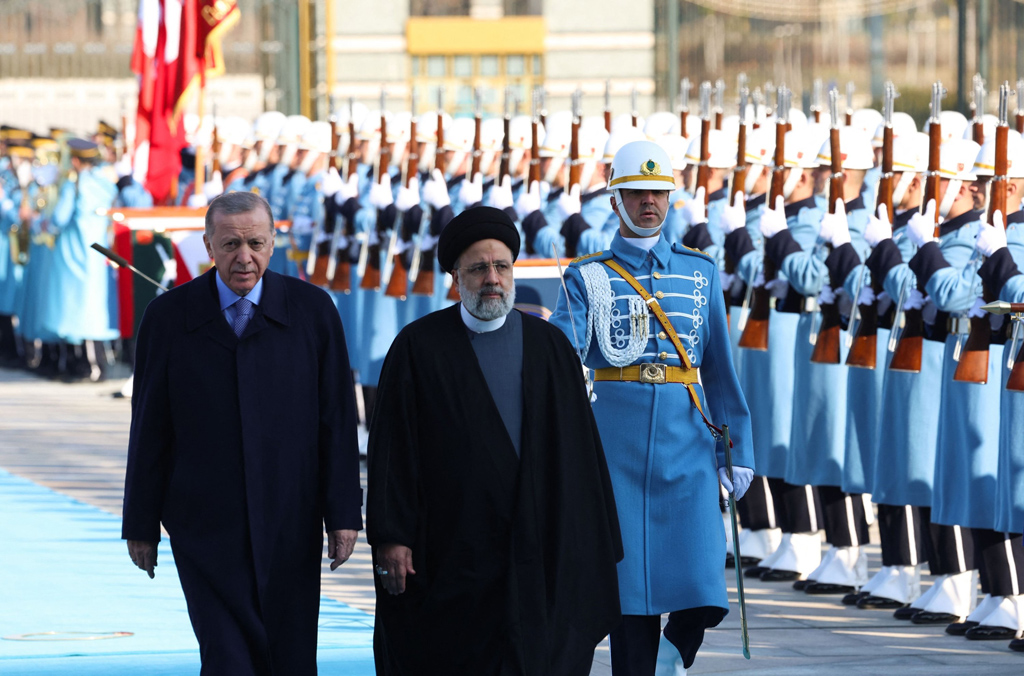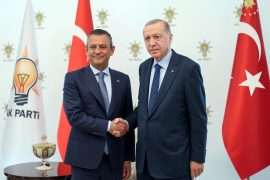Biden Administration
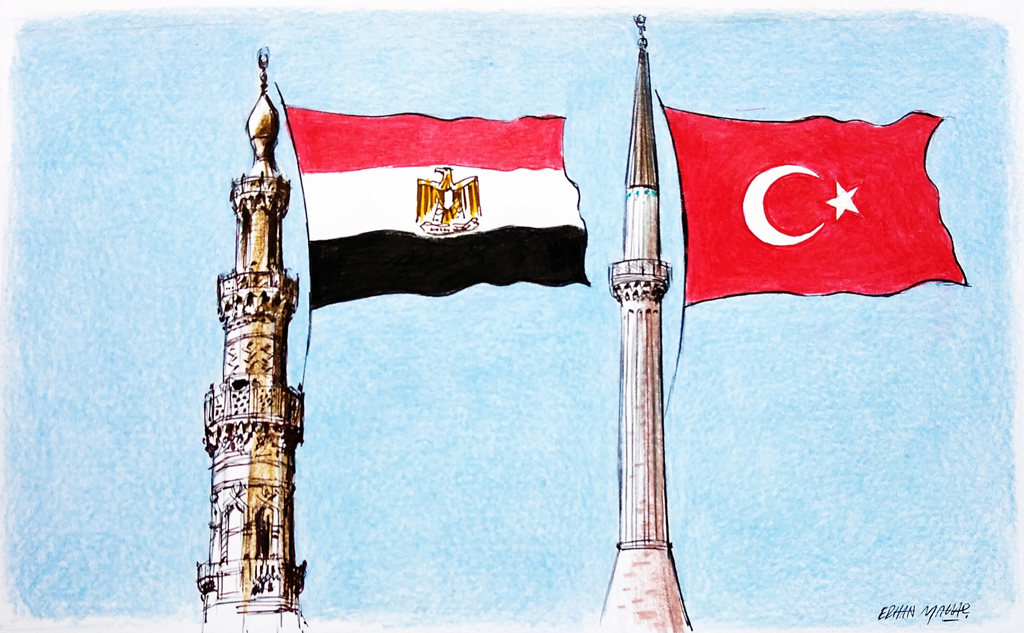
Türkiye’s diplomatic normalization efforts to yield key alliances
| OpinionPresident Recep Tayyip Erdoğan’s visit to Egypt marked the completion of yet another stage in …
-
Opinion
Türkiye’s diplomatic normalization efforts to yield key alliances
By Burhanettin DuranPresident Recep Tayyip Erdoğan's visit to Egypt marked the completion of yet another stage in Türkiye's normalization policy. The two countries thus agreed to brush aside their 12-year disagreement in an attempt to join forces anew. There is little sense in bringing up past statements to talk about concessions and U-turns.
-
Opinion
Pick your poison: Trump’s threats or Biden’s inertia on Netanyahu
By Burhanettin DuranDonald Trump, who seeks reelection in the United States, made headlines with his most recent comments on NATO. It is a well-known fact that he had previously described NATO as “obsolete” and condemned NATO allies that did not meet the 2% defense spending target. This time around, the former U.S. president told a crowd in South Carolina that he would encourage Russia to do “whatever the hell they want” to any NATO country that does not meet its financial obligations. He made those remarks shortly after the Republicans blocked military aid to Ukraine and Russian President Vladimir Putin blamed the war on NATO’s fifth enlargement in an interview.
-
Opinion
Trump, NATO, and American global leadership
By Kadir ÜstünThe remarks made by Trump, who is widely expected to run for president as the Republican Party candidate, regarding NATO once again underscored how fragile America's claim to global leadership is. Trump threatened to pressure certain NATO member countries to increase their military spending or face consequences. By stating that Russia could do whatever it wants with these countries, Trump escalated his anti-NATO rhetoric to new heights during his presidency. Trump's longstanding questioning of the concept of collective defense by the United States and his failure to protect a NATO member country practically spells the end of this military alliance. The loss of the deterrent effect of NATO's Article 5-based collective defense concept would not only undermine the alliance's guarantees but also signify the end of America's leadership within the Western alliance. As America engages in a global power struggle with Russia and China, it will become increasingly difficult for the country to conduct this struggle within the Western alliance without establishing unity.
Bu Konuda Daha Fazla
-
New escalation in regional conflict
By Kadir ÜstünThe killing of three American soldiers in Jordan by pro-Iran militias via UAV strikes initiated a new escalation in the escalating regional conflict. Since October 7th, concerns about regional warfare seemed obsolete. We previously noted Israeli Prime Minister Netanyahu's attempt to expand the Gaza conflict regionally and entangle the US in conflict with Iran. The Jordan attack partially succeeded in these efforts. Over the past week, the US conducted military operations in the region, signaling a response.
-
‘Ready to explode’ Middle East and the U.S.
By Burhanettin DuranU.S. Secretary of State Antony Blinken visits the Middle East this weekend for the fifth time since the Oct. 7 attack.
-
After approval of Sweden’s NATO bid and Raisi’s visit
By Burhanettin DuranAs the municipal election campaign gained momentum with the unveiling of mayoral candidates and the fine-tuning of their campaigns, two major developments took place in foreign policy: the Turkish Parliament’s approval of Sweden’s NATO admission on Tuesday and Iranian President Ebrahim Raisi’s visit to the Turkish capital, where Türkiye and Iran signed 10 agreements.
-
The F-16 issue and the mutual trust problem
By Kadir ÜstünAfter Sweden's NATO membership was approved in the Turkish Grand National Assembly (TBMM), reports emerged that President Biden sent a letter to Congress seeking approval for the sale of F-16s. These developments indicate that we are nearing the conclusion of the long-debated F-16 issue. If the sale goes through, it could somewhat alleviate the deep-seated distrust that has plagued Turkish-American relations for some time. This distrust has made what should have been a routine arms deal between two NATO allies such a contentious process. Overcoming this hurdle would be beneficial for both countries, but it's still too early to declare the start of a new era. The potential sale of F-16s could pave the way for a new chapter by reducing mutual distrust.
-
Complex dynamics of Türkiye-Iran relations
By Murat YeşiltaşTraditionally, Türkiye-Iran relations have been defined by a mix of competition and cooperation. Sharing a long land border and possessing a multidimensional historical depth, numerous dynamics simultaneously affect the relationship between the two countries.
